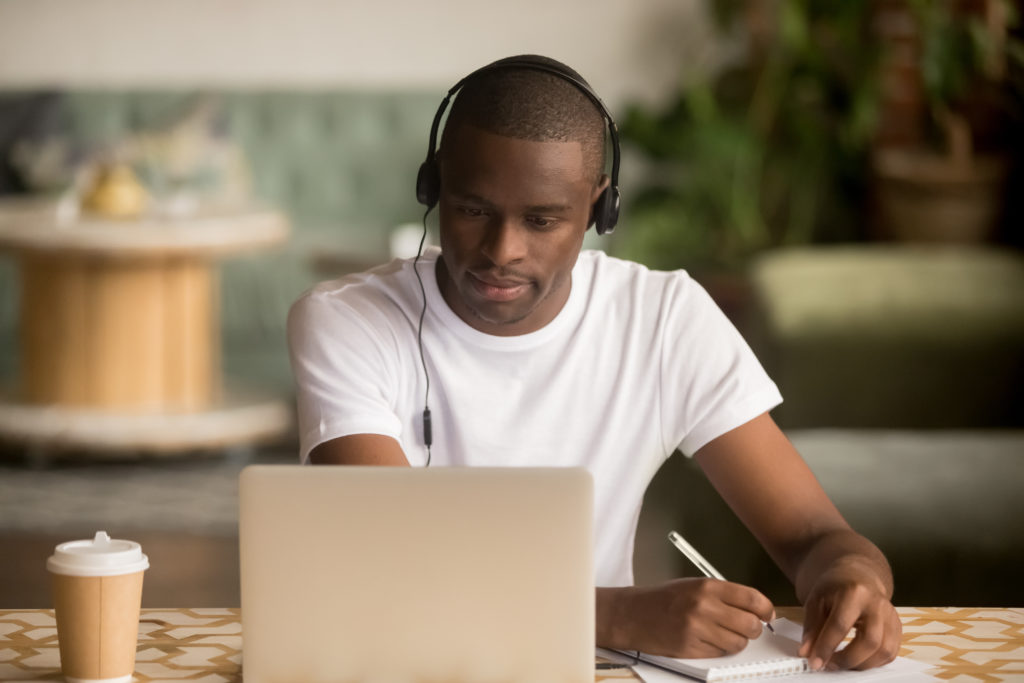Quick Hits
Daily brief research updates from the cognitive sciences

W ouldn’t it be great if we could learn things double speed? Well, maybe we can. At least according to a study out of the University of California.
During the pandemic many students have been watching or catching up on lectures by watching recordings of lectures. These researchers wanted to know what happens if the recordings are speeded up – often students will speed through these recordings anyhow. What they found is that these can be sped up to about double the speed without any loss of comprehension or knowledge. It seems that this is down to how we process spoken speech. We tend to speak at about 150 words per minute and can process speech at up to 275 worlds per minute – almost double the speed. More than doubling the speed reduces comprehension.
They conducted different experiments, for example by watching twice at double speed, spaced by a week, or watching once at normal speed and once at high speed. Watching twice did marginally increase scores.
So, the summary is that watching speeded up video of lectures – up to twice the normal speed does not reduce comprehension and watching twice double speed improves comprehension (but not by very much).
Seems like this is a good idea then – but beware of cognitive load, cramming your day with double-speed lectures may also not be so good – that’s probably another experiment to conduct.

Andy Habermacher
Andy is author of leading brains Review, Neuroleadership, and multiple other books. He has been intensively involved in writing and research into neuroleadership and is considered one of Europe’s leading experts. He is also a well-known public speaker speaking on the brain and human behaviour.
Andy is also a masters athlete (middle distance running) and competes regularly at international competitions (and holds a few national records in his age category).
Reference
Dillon H. Murphy, Kara M. Hoover, Karina Agadzhanyan, Jesse C. Kuehn, Alan D. Castel.
Learning in double time: The effect of lecture video speed on immediate and delayed comprehension.
Applied Cognitive Psychology, 2021
DOI: 10.1002/acp.3899
More Quick Hits
Adventurous Play Boosts Mental Resilience in Kids
o, a simple cheap way to help your kids improve all life skills and strengthen mental wellbeing. Too good to be true? Well, this piece of research, just out, finds a fascinating correlation with mental health and kids. This correlation was...
So, Meditation Doesn’t Change Your Brain – Or Does It?
editation can actually change your brain. "Oh, no it can’t!" say these researchers. "Oh, yes it can!" say a lot of other researchers. Does this start to sound confusing? Well, it does because there has been plenty of evidence that...
The Life Factors that Make Lonely People Lonely
Quick HitsDaily brief research updates from the cognitive sciences ou may assume, logically at first glance, that not having contact to people is the most important factor in loneliness. And obviously this does have a large impact — but...
How Music Helps With Collective Grief
his study recently out analyses a fascinating episode in China at the start of the pandemic. A group of international musicians in Shenzhen produced a viral hit in China. This was a cover version of Michael Jackson's “you are not alone”...
Why it pays for companies to help workers have a good day in the office
usiness and executives in those businesses are more than keen to get a competitive advantage. To this end they invest heavily in technology and getting the right people to do the job. But, I am sure, we are all more than aware that the work...
Vaccination to Keep Your Memory?
Quick HitsDaily brief research updates from the cognitive sciences ho wouldn’t want to keep their memory when aging?! Well, researchers have just announced some promising results in mice enabling them to keep their memories and avoid some of...






